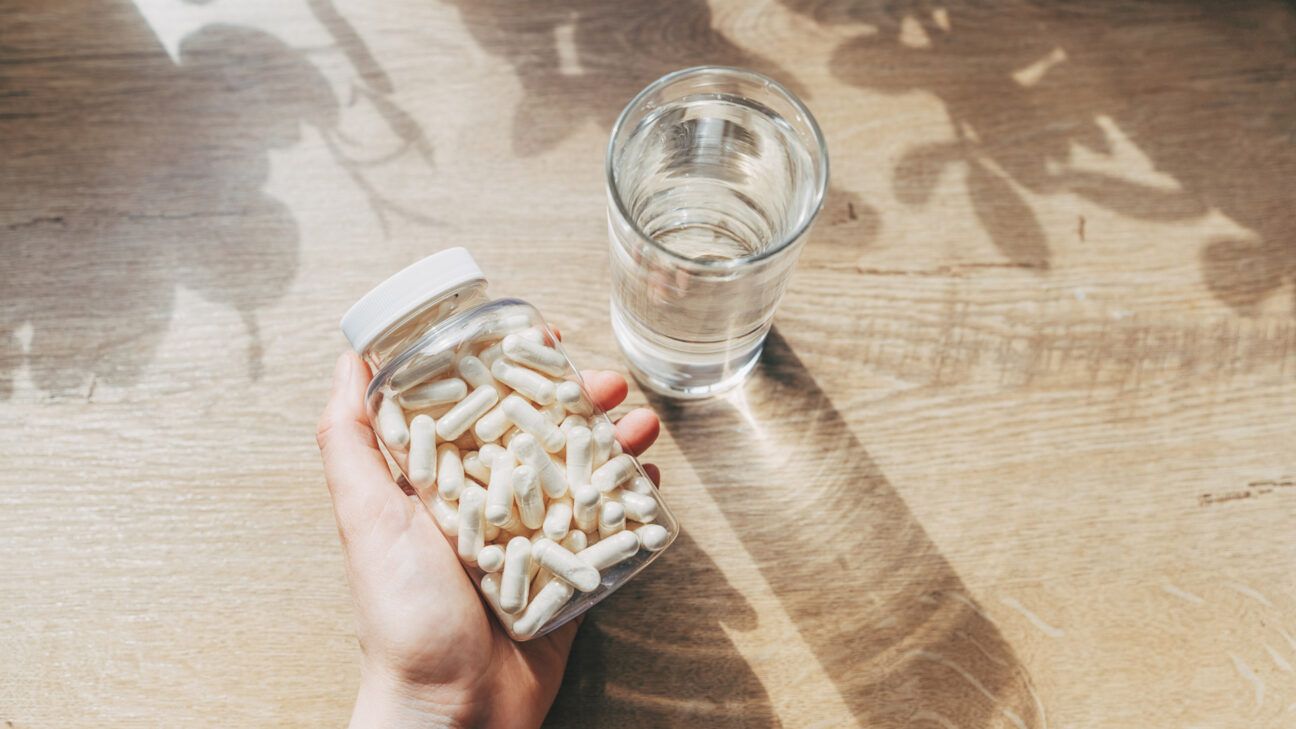Probiotics can help reduce bloating by introducing healthy bacteria into your gut. While they may help people with symptoms of irritable bowel syndrome (IBS), they could cause bloating in others.

Probiotics, which contain beneficial bacteria for your gut, may help reduce bloating in some people. But research is limited and generally focuses on people with bloating from underlying conditions like irritable bowel syndrome. It’s also possible that probiotics may contribute to bloat in some people.
If you have frequent or chronic bloating, consider talking with a doctor about probiotic treatment. You can find probiotics in fermented foods like sauerkraut, kimchi, and yogurt. But they’re also widely available in the form of dietary supplements.
Several studies have explored the potential benefits of probiotics for people with irritable bowel syndrome (IBS), a condition that can cause bloating, abdominal pain, and diarrhea. There hasn’t been much research on the effects of probiotics on people with chronic or occasional bloating.
A
Probiotics contain live microorganisms, including several species and strains of healthy bacteria. These inconsistencies between strains and the combinations included in various supplements have hampered research into the benefits of probiotics.
Clinical guidelines released by the
A 2020 research review looked at treatment and management options for chronic bloating and abdominal distention. The authors noted that probiotics could potentially reduce bloating by modifying the gut microbiome, but that results may vary.
Researchers are also studying the use of probiotics in other conditions, including:
- diarrhea after taking antibiotics
- traveler’s diarrhea
- constipation
- immune strength
- infant colic
- gum disease
- tooth decay (cavities)
- allergies and dermatitis
- Clostridium difficile (C-diff) infection
Besides probiotics, there are other ways you may be able to reduce bloating. Consider:
- eating smaller meals throughout the day
- reducing your intake of spicy, fatty, and processed foods
- eating more fiber (for constipation-related bloating)
- avoiding certain foods that make bloating worse, such as beans, cabbage, and broccoli
- drinking more water and avoiding soda and alcohol
- limiting caffeinated beverages, such as coffee and tea
- getting more physical activity
Depending on the underlying cause, a doctor may also suggest other strategies, such as temporarily following a low-FODMAP diet, or taking medications for conditions like IBS.
Here are answers to some frequently asked questions about probiotics for bloating:
Which strain of probiotics are best for bloating?
The most commonly studied probiotic supplements include strains from Bifidobacterium and Lactobacillus. Because of this, most clinical studies have focused on these strains. But more research is needed to discover which strains, or combinations of strains, could be most beneficial for bloating.
Can probiotics cause bloating?
In some cases, a probiotic supplement may cause bloating. This may be especially true if you take too much at a time. Other possible side effects of too many probiotics include gas and abdominal cramps.
Are probiotics safe?
Generally, probiotics are considered a safe treatment because they usually contain the same healthy bacteria that exist inside our bodies. But there may be a few exceptions. For example, probiotics may cause infections and other risks in premature infants, adults with serious illnesses, and people who are immunocompromised.
How do you know if probiotics are working?
If you’re trying probiotics for bloating, it may be a few weeks before you notice any improvements. Changes in the gut microbiome can take time. You might consider adding prebiotics to your regime to see whether they help boost the effects of the probiotics.
If you are experiencing constant or regular bloating for several weeks at a time, you may want to consider speaking with a doctor. This is especially true if your symptoms are interfering with your life because you’re uncomfortable or in pain. Also, consider talking with a doctor if any of the following symptoms accompany your bloating:
- constipation
- blood in the stool
- diarrhea
- nausea or vomiting
- unintentional weight loss
Bloating is a common problem that can be distressing. You may be able to treat bloating at home with probiotics and lifestyle changes.
But consider speaking with a doctor if you’re experiencing constant bloating, abdominal pain, or constipation.


